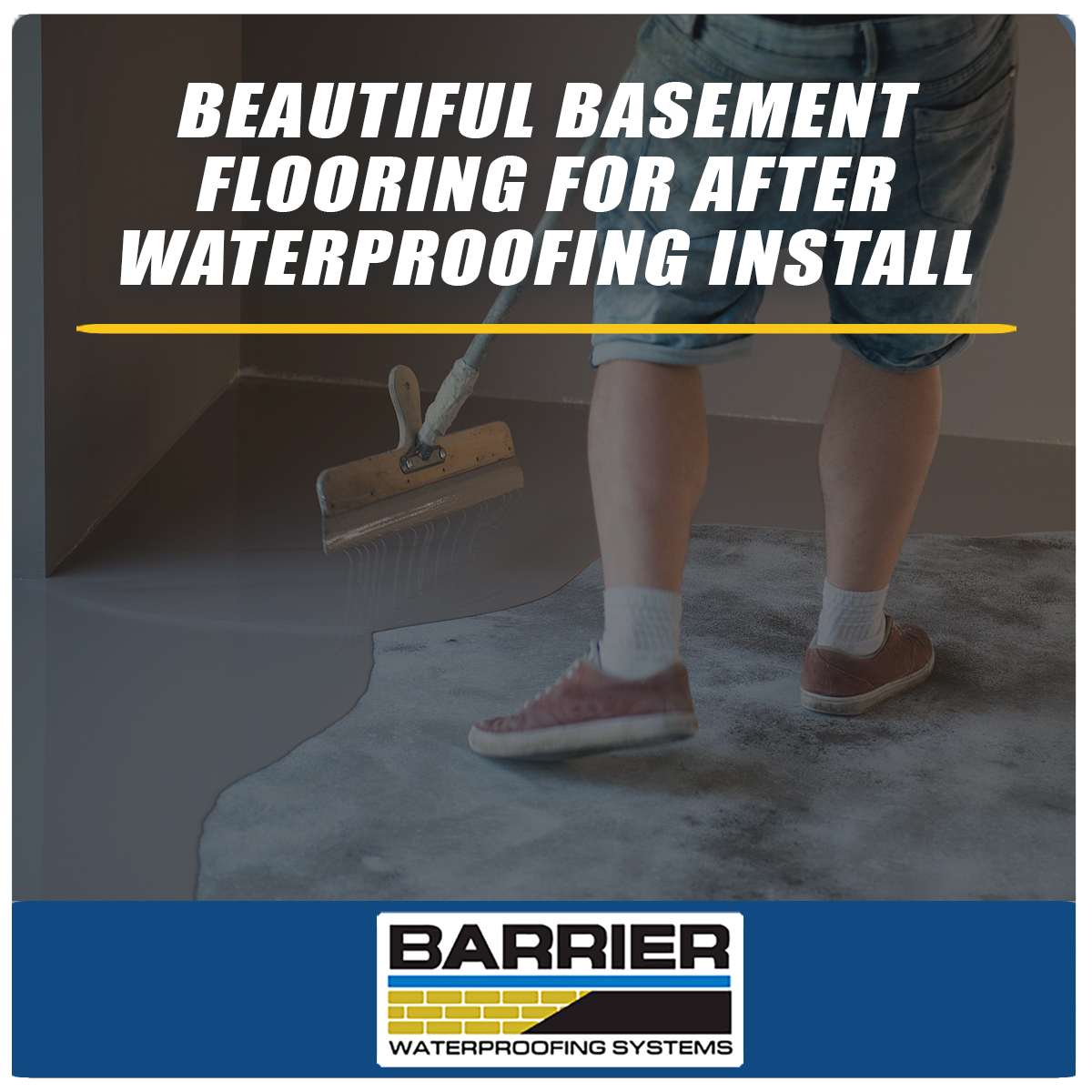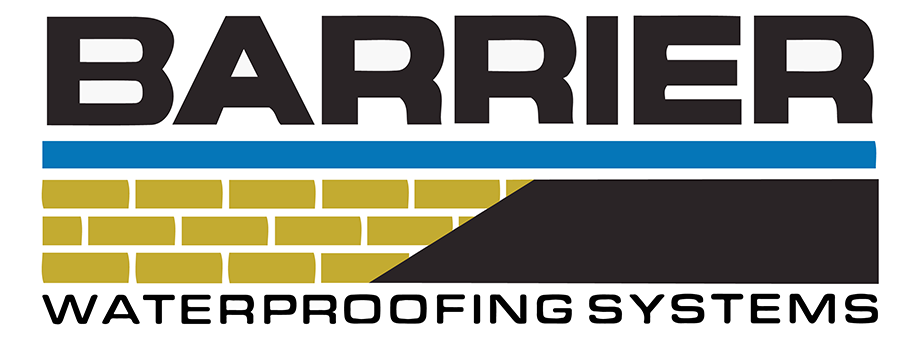There are a few things to consider regarding basement flooring installation or finishing, regardless of where you live. For one thing, understanding the jargon used by contractors would be very beneficial. Second, just like when you’re cooking a great meal, you’ll want to ensure all the preparation work is done correctly so you can get the most from your finished product.
Reading below will help you understand more about the different types of basement flooring (including some rather unique options!) that you can choose from once your basement has been waterproofed. After a professional basement waterproofing system has been installed, like one from your local BARRIER Waterproofing Systems experts, you can rest assured it will be safe from intruding moisture. So why not go all out and invest in a beautiful basement floor that will last you a long time?
What is the ‘Below Grade’ flooring?
While terminology varies depending on location and contractor, more experienced teams will commonly refer to basement flooring as ‘Below Grade’ or ‘Below Level’ flooring. That being said, basement flooring is not inferior; it simply means that it is located below the first level (or grade) of your house. This is important because not all flooring types can be fitted below grade.
The Subfloor Comes First!
Imperfections in subflooring can wreak havoc on your whole floor regardless of where it is failing. Even inconspicuous areas can contribute to your flooring woes. After all, it is the very base for all of your flooring!
Modern homes, with a few exceptions, are typically built with concrete basement subflooring. Wood is commonly used above grade, not for basement walls and floors, because it warps when wet.
If your subflooring is non-uniform or affected by other variables, you must first address those before a flooring installation. Some types of floors, particularly click-together flooring, require very smooth subfloors. Others can perform well enough to be placed over a few minor flaws. However, before you begin, it is crucial to ensure that your subfloor is as level as possible!
What Are Some Of The Best Basement Flooring Options?
As it turns out, there are indeed a lot of amazing choices competing for the title of best basement flooring! Check out the options we recommend below for the most appropriate one for the make and design of your home:
Concrete flooring:
Concrete is a very versatile option to consider, especially if you intend to use your basement for more functional purposes. Concrete is extremely durable and resistant to moisture and it comes in various styles.
Concrete flooring types include:
- Painted concrete: It may appear overly simple, but it counts! It’s by far the most inexpensive option, and it’s a great way to add a little twist to your underground flooring without spending much money.
- Stained concrete: It has the same properties as painted concrete but uses stain rather than paint. The main distinction is that stains can also function as an insulator or additional moisture barrier. Not to mention the depth that can be created with specially designed stains!
- Textured concrete: This version requires a little more effort than the others, but the outcome can be stunning when done correctly. A textured concrete flooring alternative can be made to look like almost anything.
Rubber:
Rubber matting is amongst the best flooring for basements and underground bunkers that aren’t particularly flashy. It has average longevity and limited style options, but it is also very affordable, easily replaceable, and completely recyclable!
Luxury Vinyl Plank:
You may have seen this flooring material abbreviated as LVP. LVP is extremely versatile and inexpensive. You can install vinyl plank flooring on stairs, in a mudroom, in a bathroom, kitchen, or bedroom, and, of course, in your basement! This high-end, multi-layered PVC flooring option is completely synthetic, waterproof, and can be customized to display any pattern.
There are numerous types of luxury vinyl. However, some more unique options provide increased durability, a springier feel underfoot, or even floors designed to be changed on the fly.
Tiles:
There are three main types of tile (ceramic, porcelain, and stone), each of which has a zillion different categories. It works well as basement flooring since it is waterproof, attractive, and resistant to daily wear and tear. And, like vinyl, there are numerous styles and price options.
Although porous, ceramic tile is generally waterproof. It’s the earthiest of those types, which is why it’s most commonly used outside.
Porcelain tile is a ceramic form, but it is more refined and glazed, making it less porous and generally stronger.
Stone tile, on the other hand, is generally made of slate or onyx. It’s costlier than the other alternatives, but it’s also more long-lasting and has one of the most elegant floors you can buy.
Cork:
It is one of the contenders for the best basement flooring that does not have a lot of moisture. Cork can widen and degrade with humidity unless it is constantly re-staining. However, its springy feel, longevity, and general high flexibility make it an excellent choice for basement flooring.
Cork is widely regarded as environmentally friendly flooring since it can be manufactured sustainably and contains many natural ingredients. Cork is naturally antimicrobial, making it ideal for those who have mold allergies or sensitivities! Furthermore, the best cork flooring imitates a distinct and interesting hardwood appearance.
Cork, surprisingly, is some of the finest floorings for basements! Cork flooring will last a long time if properly maintained. It’s also warm, functional, and mold-resistant.
Every homeowner wants to make their house beautiful and damp-proof. If you want to make your house mold-free, you may consider contacting Barrier Waterproofing Systems in this regard. We provide professional waterproofing, crawl space encapsulation, and foundation repair services at an affordable cost. Give us a call today at (615) 257-1060 | (931) 536-1168 for a FREE evaluation.

